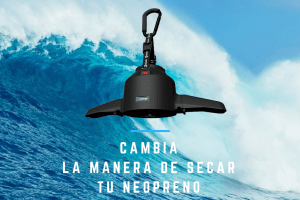Boardriders Sold to Authentic Brands Group: What Does It Mean for the Surf Industry?
The genesis of Quiksilver can be traced back to 1969, when Alan Green fashioned a pair of boardshorts in Torquay, Australia. Over the years, the brand grew into a formidable force that left an indelible mark on surfing culture and industry. Quiksilver secured surfing’s first million-dollar contract, introduced the ‘Dream Tour’, produced iconic surf films, and invested heavily in solving the problem of boardshort rash. At its peak, the brand was valued at over a billion dollars.
In 1991, Quiksilver diversified into women’s clothing with the launch of Roxy, and acquired DC in 2004. The company also made a bold move in 2005 by purchasing French ski maker Rossignol for $560 million, but was forced to sell it three years later for a mere $37.5 million plus a $12.5 million note. This, along with other factors, ultimately led to Quiksilver filing for Chapter 11 bankruptcy in 2015.
However, the brand was given a new lease of life in 2016 when private equity firm Oaktree Capital Management acquired it, along with Roxy and DC. The company was rebranded as Boardriders the following year, and in 2018, they made headlines by acquiring debt-laden Billabong Group, which included Element, Von Zipper, RVCA, and XCEL. Oaktree’s strategy of buying, restructuring, and selling “distressed assets” seems to have paid off for Boardriders, which continues to be a dominant force in the surf industry.
Over the past year, Boardriders has undergone significant changes, including a spate of layoffs, cost-cutting measures, and the use of buzzwords like “synergy” and “headwinds”. Quiksilver even relocated its global headquarters from France to the USA, and Billabong sold its North Shore property for $6,500,000. In November, 170 employees were let go, prompting speculation that Oaktree was preparing to put the company up for sale.
Today, the news broke that Authentic Brands Group has acquired Boardriders. This development marks another major shift for the surf industry powerhouse.

You may recognize the name – Authentic Brands Group made headlines in 2019 when they acquired Volcom. For months, ABG and Blue Star Alliance had been rumored to be in the running for a Boardriders acquisition. Blue Star even secured an exclusivity period with Oaktree, giving them time to conduct due diligence and raise funds without the risk of being outbid.
However, the exclusivity period expired without a sale, and ABG re-entered the picture. It’s unclear whether waiting for the period to expire resulted in a better deal, but according to Bloomberg, the sale price is estimated to be around $1.3 billion.
It’s worth noting that Blue Star also purchased Hurley in 2019 – the same year ABG bought Volcom. Examining how these acquisitions played out could give us insight into what the future holds for Boardriders’ stable of brands.
ABG and BSA share a common emphasis on licensing strategies, which involves granting other companies the right to use a brand’s logo to produce and sell products in various regions or product categories. This differs from a traditional brand model, where a centralized team manages product development, marketing, sales, and distribution. Under a licensing model, various companies are granted the right to use the brand’s logo, giving them more freedom to develop and market products that align with their specific markets or audiences.
After acquiring Hurley, Blue Star took a controversial step of laying off over 60 employees at the brand’s Costa Mesa headquarters, including key staff members and team riders. They then sold the license for producing men’s clothing in the USA to United Legwear, a New York-based company with distribution partners ranging from Walmart to Foot Locker. As a result, Hurley’s products expanded to include electric scooters and beard oil, straying from its original focus on surfing.
Despite these changes, Hurley still sponsors the Sunset CT event and the most recent male World Champion, as Blue Star’s marketing team injects funds into surfing. They are also attempting to re-engage with their core audience of surfing enthusiasts by maintaining their presence in surf shops.

According to Stab, the acquisition of Boardriders was celebrated with a wild party, and the general belief was that ABG would help grow the brand instead of dismantling it. Volcom’s product, marketing, and dedication to surfing appear to be unchanged since the acquisition.
However, ABG has faced criticism for its selective approach to brands, with a portfolio ranging from Marilyn Monroe to Brooks Brothers. After acquiring Sports Illustrated, they sold the license to operate the magazine and website, leading to staff layoffs and the use of the brand on CBD oil products. This strategy is more reminiscent of Blue Star.
Ultimately, the impact of the acquisition will depend on who holds the licenses to the Boardriders brands, not just ABG’s ownership of the intellectual property. With the uncertain economic forecast, it remains to be seen what the future holds for the brand.
This article has been written based on the news published by Stab Magazine.



